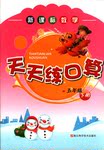题目内容
Very old people do raise moral problems for almost everyone who comes into touch with them.Their values---this can not be repeated too often--aren’t necessarily our values.Physical comfort,cleanness and order are not necessarily the most important things.The social services from time to time find themselves faced with a room with rotten food covered by small worms,and an old person lying alone on bed,taking no notice of the worms.But is it interrupting personal freedom to insist that they go to live with some of their relatives so that they might be taken better care of? Some social workers,the ones who clear up the worms,think we’re in danger of carrying this idea of personal freedom to the point where serious risks(冒险)are being taken with the health and safety of the old.
Indeed,the old can be easily hurt or harmed.The old is like a car: it needs more mechanical repair as it gets older.You can carry this comparison right through to provision of spare parts.But never forget that such operations are painful experiences,however good the results are.And at what point should you stop to treat the old body?Is it morally right to try to push off death by continuing the development of medicine to excite the forgetful old mind and to make the old body active,knowing that it is designed to die?You cannot ask doctors or scientists to decide,because so long as they can see the technical chances,they will feel it necessary to give them a try,by the rule that while there’s life,there’s hope.
Talking to the old,however,you’re forced to the conclusion that whether age is happy or unpleasant depends less on money or health than it does on your ability to have fun.
- 1.
After reading Paragraph 1,we learn that____.
- A.very old people are able to keep their living places very clean
- B.old people enjoy living alone so as to have more personal freedom
- C.every old people enjoy living with their relatives
- D.social services have nothing to do with very old people
- A.
- 2.
Some social workers think that_____.
- A.old people should keep their living places clean
- B.one should not take risk dealing with old people
- C.health and safety are more important than personal freedom
- D.personal freedom is more important than health and safety
- A.
- 3.
In Paragraph 3,the underlined word“it”refers to____.
- A.one’s memory or health
- B.the conclusion you have come to
- C.whether age is happy or unpleasant
- D.your talk to the old people
- A.
- 4.
The writer of this passage thinks that_______.
- A.it is always morally right to treat old people and push off death
- B.the opinion that we should try every means possible to save old people is uncertain
- C.old people can enjoy a happy life only if they are very rich
- D.medical decisions for old people should be left to the doctors
- A.
BCCA
1.根据文章第一段可知,老人无人照料这一现象引发了道德问题,并提到照料老人是否干扰了个人自由。
2.第一段最后一句提到社工的疑虑:这么做是否会是冒险,是不是打扰了老人的健康与安全?他们认为对老人的安康应首先加以考虑。
3.从上下文判断,it应指上面的从句内容,即:Whether age is happy or unpleasant depends less...than it does on...
4.作者在提出这一现象,谈论人们的困惑之后的第三、四段摆出自己的观点:我们应照顾老人,让他们与我们一起享受快乐,远离死神。
1.根据文章第一段可知,老人无人照料这一现象引发了道德问题,并提到照料老人是否干扰了个人自由。
2.第一段最后一句提到社工的疑虑:这么做是否会是冒险,是不是打扰了老人的健康与安全?他们认为对老人的安康应首先加以考虑。
3.从上下文判断,it应指上面的从句内容,即:Whether age is happy or unpleasant depends less...than it does on...
4.作者在提出这一现象,谈论人们的困惑之后的第三、四段摆出自己的观点:我们应照顾老人,让他们与我们一起享受快乐,远离死神。

练习册系列答案
 口算小状元口算速算天天练系列答案
口算小状元口算速算天天练系列答案 天天练口算系列答案
天天练口算系列答案
相关题目